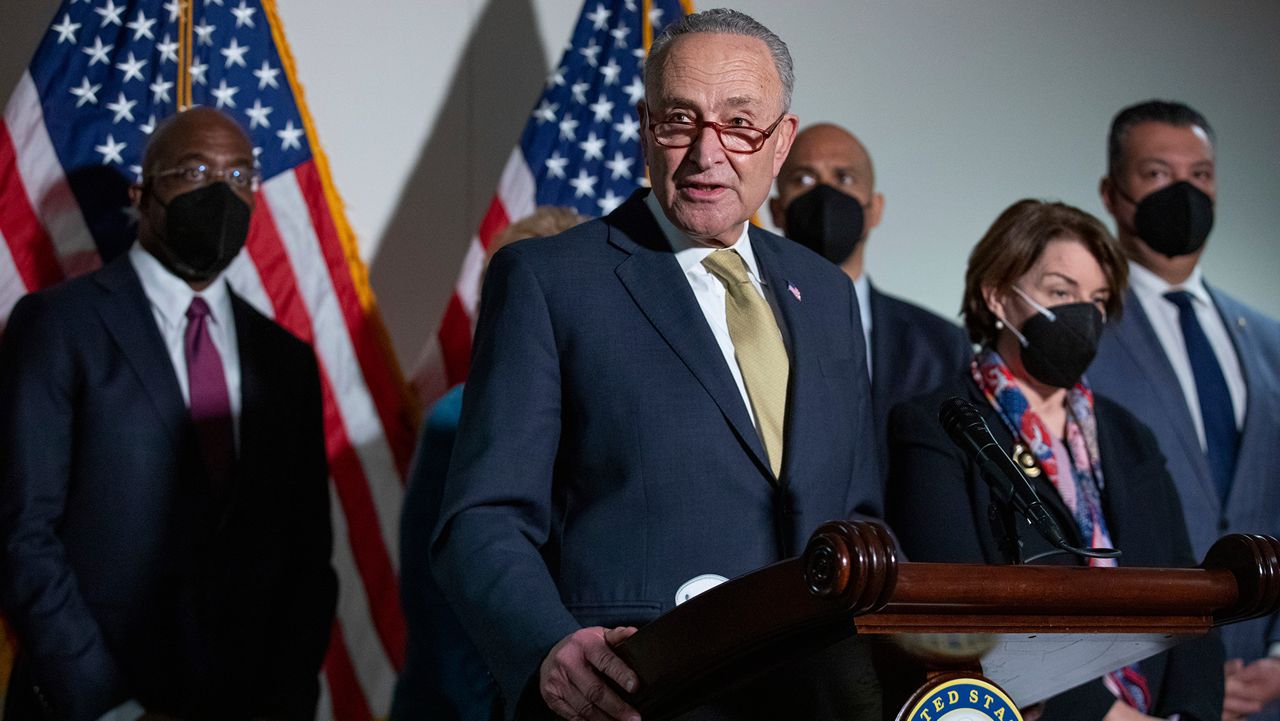A cohort of Democrats from the House and the Senate penned a letter to President Joe Biden asking for the administration to extend the pause on federal student loan payments through “at least” the end of the year.
Federal student loan payments were first paused when Congress passed the CARES Act in March 2020 under the Trump administration, and the moratorium was originally set to expire in September of the same year. Both Trump and Biden subsequently extended the pause, with the most recent extension coming from the White House at the end of December 2021.
Biden’s order, which also included a 0% interest rate on payments and a pause on collections for defaulted loans, is set to expire on May 1.
On Thursday, the group of lawmakers, which includes Senate Majority Leader Sen. Chuck Schumer, D-N.Y., Sens. Elizabeth Warren, D-Mass., Alex Padilla, D-Calif., and Raphael Warnock, D-Ga., and Reps. Ayanna Pressley, D-Mass., Ilhan Omar, D-Minn., Pramila Jayapal, D-Wash., and House Majority Whip James Clyburn, D-S.C., urged the president to issue yet another pause – and even a lengthier extension.
“We are writing to urge you to act now to extend the pause on federally-held student loan payments until at least the end of the year and to provide meaningful student debt cancellation,” the group of lawmakers wrote in part, adding: “Although there may be different ideas about the best way to structure cancellation, we all agree that you should cancel student debt now.”
There are upwards of 41 million individuals who owe a collective $1.6 trillion in federal student loan repayments and debt. The average individual with federal student loans has $37,113 in debt, per the Education Data Initiative.
In Thursday’s letter, lawmakers also pointed to socioeconomic and racial disparities in those who take out federal student loans, saying the “student loan system mirrors many of the inequalities that plague American society and widens the racial wealth gap.”
According to EDI, while white Americans hold 54% of federal student loan debt, Black Americans have, on average, $25,000 more in student loan debt than their white counterparts and are the second-most likely demographic, behind American Indian and Alaska Native borrowers, to have payments exceeding $350 per month.
Non-white student loan borrowers tend to struggle to repay loans at the same rate as white borrowers because of compounding barriers like the growing racial wealth gap, pay disparities and other forms of discrimination.
“As your administration works towards rebuilding a more equitable and just economy, it should use its administrative powers to address this crisis and permanently relieve the millions of borrowers struggling with this debt,” Democrats wrote to Biden. “Canceling a meaningful amount of student debt will provide long-term benefits to individuals and the economy, helping families buy their first homes, open a small business, or invest in their retirement.”
The lawmakers wrote they were heartened after White House chief of staff Ronald Klain in early March hinted the Biden administration was considering yet another extension on the moratorium, telling the podcast Pod Save America: “The president is going to look at what we should do on student debt before the pause expires, or he’ll extend the pause.”
The lawmakers who signed on to Thursday’s letter are not alone in their party in pressing the issue of federal student loan forgiveness.
Sen. Patty Murray, D-Wash., chair of the Senate Health, Education, Labor and Pensions Committee, in mid-March called on the Biden administration to extend the payment pause until at least 2023, also proposing a number of steps to “permanently fix our student loan system.”
In the House, Rep. Alexandria Ocasio-Cortez, a longtime advocate of student loan forgiveness, called out President Biden's failure to mention the issue during his State of the Union address in early March, telling MSNBC: "Things like student loan debt, the larger themes and crises in education, as well as the piece on immigration was really just glossed over."



